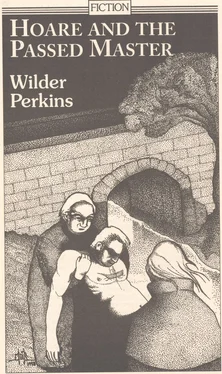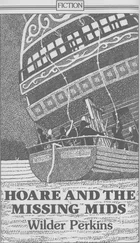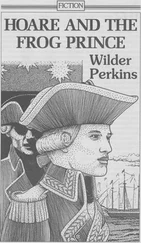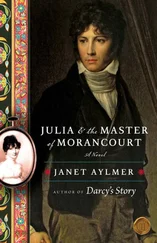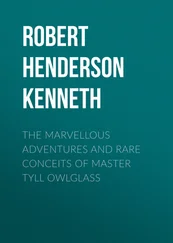Wilder Perkins - Hoare and the Passed Master
Здесь есть возможность читать онлайн «Wilder Perkins - Hoare and the Passed Master» весь текст электронной книги совершенно бесплатно (целиком полную версию без сокращений). В некоторых случаях можно слушать аудио, скачать через торрент в формате fb2 и присутствует краткое содержание. Жанр: Исторический детектив, на английском языке. Описание произведения, (предисловие) а так же отзывы посетителей доступны на портале библиотеки ЛибКат.
- Название:Hoare and the Passed Master
- Автор:
- Жанр:
- Год:неизвестен
- ISBN:нет данных
- Рейтинг книги:5 / 5. Голосов: 1
-
Избранное:Добавить в избранное
- Отзывы:
-
Ваша оценка:
- 100
- 1
- 2
- 3
- 4
- 5
Hoare and the Passed Master: краткое содержание, описание и аннотация
Предлагаем к чтению аннотацию, описание, краткое содержание или предисловие (зависит от того, что написал сам автор книги «Hoare and the Passed Master»). Если вы не нашли необходимую информацию о книге — напишите в комментариях, мы постараемся отыскать её.
Hoare and the Passed Master — читать онлайн бесплатно полную книгу (весь текст) целиком
Ниже представлен текст книги, разбитый по страницам. Система сохранения места последней прочитанной страницы, позволяет с удобством читать онлайн бесплатно книгу «Hoare and the Passed Master», без необходимости каждый раз заново искать на чём Вы остановились. Поставьте закладку, и сможете в любой момент перейти на страницу, на которой закончили чтение.
Интервал:
Закладка:
But he had never before faced the problem of finding out who had killed a nameless sailorman.
By journey's end Hoare had seen enough of Dunworthy despite the dark to realize that his dress was tidier than the average unsupervised male's and had concluded that the doctor employed a wife or other female to keep him in order. So it proved. Bearing a guttering candle which she shielded ineffectually with one hand, Mrs. Dunworthy opened the door for them. She was shaped much like her husband as Hoare could readily observe, since she was clad in an enveloping night-rail.
The yawning wife furnished them an end of ham and a slice of yesterday's bread. After attending to his hack, Hoare took his share of the provisions, with his saddlebags, up to the garret room allotted him. It might have been the room of a Dunworthy son-grown and gone? dead? — for a forlorn cock-horse leaned in one corner and a basket of wooden building blocks rested in another.
The bed was too short for Hoare's lanky frame, but no shorter than many of the hammocks and swinging cots of his nights at sea. Stripping off his outer garments, he wound himself into the musty blankets and lay sleepless.
Question after question paraded through his mind, futilely seeking answers. He felt himself out of his depth. How had the dead man come to be under the willow in the dale, as Dunworthy had described the place? Could he have been killed by a resurrection man, or two of them as in the shocking recent case of Burke and Hare in Scotland?
What had the dead man been? He could not have been a boatswain or a gunner, for the body was that of a man out of condition. A purser, then, or a master. And who had he been?
Names, names…
Hoare's own, of course, was that of his father, Joel Hoare, an Orkneyman of Viking stock. Bartholomew had defended that good name with fists and feet again and again before he was out of smallclothes. Even before Captain Hoare had wangled his son his warrant as midshipman in the brig Beetle, young Bartholomew had run a jeering schoolmate through the thigh with a carving knife. By now it was a foolhardy man who mocked the good name of Bartholomew Hoare; whether with pistol, v©pv©e, or saber he placed his blow where he chose, making his choice according to the offense. So far, he had always avoided killing his man.
Hoare had been the sole officer of Beetle to survive the great September tempest in the last year of the American war, when a widow-maker sea had swept the others, to a man, from her quarterdeck. Not only that: as he was working the brig northeast to Halifax under jury rig, he had encountered a small Yankee privateer, taken her by a ruse, and brought her into Halifax in modest triumph. So Hoare had been well on his way to renown until that French bullet had as good as ended his career.
Had Dunworthy done the deed himself? If not, who had? Above all, why had Hoare stopped at the bridge? At last he drifted into sleep.
"Tell me what you make of what this man was when alive," Hoare whispered the next morning as he and Dunworthy faced each other in the cleanly surgery across the remains.
"From the tattoos, he was surely a man of your calling as you have already concluded." With surprisingly gentle hands Dr. Dunworthy probed the body's soft belly. As if in protest it gave off a burst of foul-smelling gas; decomposition was noticeably under way.
"Swollen liver. He probably drank too much port. A sad failing and one I fear I share." He straightened up with a grunt. "Come, Mr. Hoare. Let us make ourselves comfortable in my parlor while I present my conclusions about the man."
Mrs. Dunworthy was well trained, for coffee, cheese, and biscuits awaited them. The two seated themselves on either side of the empty fireplace.
"Well, sir, here is my opinion. The deceased was a man in his fifties, in reasonably good health but no longer fit. His coarse features suggest that he was of common stock. Would you not agree, Mr. Hoare, that he probably began at the bottom of your ladder and worked his way partway up it? I am not familiar with the gradations of rank in the Royal Navy, but he might have become-not quite a commissioned officer, but…"
"A warrant officer," said Hoare. "A senior master's mate, probably, or even a master. When did he die?"
"A little more than twelve hours ago, if that. Had we not moved the body about almost without interruption, we might have found it a less flexible burden." "Could he have killed himself?" Hoare asked. "Impossible, sir. Primo, why would a man strip himself naked before committing felo-de-se? Not in our climate. Secundo, I saw no blood under the bridge. He was bled dry; where did the blood go? Tertio, a person who turns the knife on himself always makes more than one cut. This cut was an admirably decisive one. No, sir; he did not destroy himself. Dear me, no." "How was he killed, then?"
Dr. Dunworthy looked at Hoare with raised eyebrows.
"The man was not drowned, he was not poisoned, and he was not bludgeoned. His throat was cut, sir, efficiently cut. Decisively, in both senses of the word. You may accept my opinion as certain."
"Well, sir… " Hoare rose to his feet "… I must return to the place whence we came and search the area. I gather that you saw no sign of the man's clothing?"
"No," the doctor said. "Nor anything else that might pertain to him. It was dark, you will recall."
"You will hear from me. Meanwhile, you must not begin your dissection."
"Not even the salivary glands, sir?" Dr. Dunworthy's voice was piteous.
"Not even the salivary glands, doctor." Hoare suspected that the salivary glands were to be found in the head, and he might want that head for identification.
"Furthermore, sir, I regret to tell you that you must keep the body intact for another twenty-four hours," he told Dunworthy.
The doctor looked at him in dismay. "In summer, sir? Surely you realize that…"
"I understand your concern, doctor. Nevertheless, I insist. Also, if you cut into your cadaver in any way that obscures its identification, I shall not answer for the consequences. Furthermore," Hoare added, "you are not to leave the neighborhood."
"I had no intention of doing so, sir. I seldom travel even as far as Southampton. But why do you put this prohibition upon me? And how am I presently circumstanced with respect to the law?"
"If you refer to your having acquired a human body for the purpose of anatomizing, doctor, it is of no consequence to me. I find the law in this respect ridiculous. How else is your profession to increase its pitiful store of knowledge about its patients? My concern is about an apparent officer of the Royal Navy who must now be marked down as 'discharged, dead.' "
Dr. Dunworthy looked greatly relieved.
"But," Hoare went on, "if you refer to the question of how the man came by his death, you will understand that you are under suspicion. I must remind you, sir, that by your own admission, you bought a body. Moreover, this man was murdered, and you might have murdered him."
"Oh Lord," said the fat man. "Am I under arrest, then?"
"I have no authority to arrest a civilian, sir, but you would be wise to follow my advice."
Hoare turned and left his host hanging-so to speak-on his doorstep. Inside himself he dithered. He knew nothing about how such men as London's Row Street Runners proceeded.
*
Hoare readily found his way back to Bishops Waltham and the bridge over the Hamble stream. Three early-rising urchins squatted on the near bank. One was just fishing out a soggy blue garment, another flourished an unmistakable uniform hat.
Hoare put two fingers to his mouth, emitted an ear-splitting whistle, and put spurs to his hack. The urchins shrieked, dropped their booty, and fled.
Hoare dismounted. As he had hoped, the blue object was a naval uniform coat, heavily stained across its breast. It was much like the one he himself was wearing except for a smaller number of buttons — a distinction that only an accustomed eye would notice. The dead man had indeed been a warrant officer and not a King's commissioned officer like Hoare. There was still a purse in the coat; it was a peculiar, wrinkled, leathery object, and it was empty. Reenter the doctor's resurrection man, Hoare decided.
Читать дальшеИнтервал:
Закладка:
Похожие книги на «Hoare and the Passed Master»
Представляем Вашему вниманию похожие книги на «Hoare and the Passed Master» списком для выбора. Мы отобрали схожую по названию и смыслу литературу в надежде предоставить читателям больше вариантов отыскать новые, интересные, ещё непрочитанные произведения.
Обсуждение, отзывы о книге «Hoare and the Passed Master» и просто собственные мнения читателей. Оставьте ваши комментарии, напишите, что Вы думаете о произведении, его смысле или главных героях. Укажите что конкретно понравилось, а что нет, и почему Вы так считаете.
